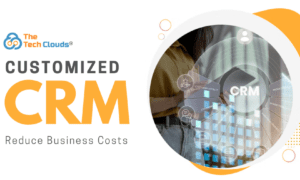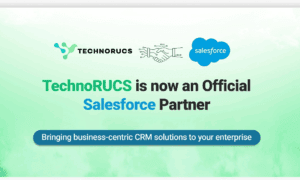CRM is highly likely to come to your mind when asked. Since they’ve been around the longest, a wide variety of businesses depend on their services.
There are a lot of customer relationship management systems out there, however. In addition, they may not be the best option for everyone.
So, with this in mind, today we will be highlighting some of the many pros and cons when putting Hubspot vs Salesforce in a head to head battle.
One of the best alternatives to Salesforce is HubSpot, which is consistently rated one of the top CRM platforms. HubSpot, known for simplicity, now offers an exceptionally powerful CRM.
It offers a combination of features that makes it a strong alternative to Salesforce for enterprise businesses.

What is HubSpot?
With HubSpot’s customer relationship management (CRM) software, you can increase your sales, services, marketing, and content management.
This central repository of information enables front office teams to deepen their relationships with customers and provide a top-notch experience.
The HubSpot system is built entirely in-house, resulting in an easier and more integrated user experience.
What is Salesforce?
It is an optional cloud-based platform for customer relationship management (CRM) with sales, service, marketing, and solutions.
As Salesforce was built through acquisitions, each product can have a different experience and connection.
Consequently, Salesforce may require extra budget or administrative resources to integrate systems, and its learning curve may be greater.
Which One is Best – HubSpot or Salesforce?
Following a brief introduction to HubSpot and Salesforce, this comparison will tackle their distinct features.
1. Ease Of Use
When it comes to CRM software, Salesforce is the industry leader. Despite its robust sophistication, it is a bit too technical for most sales reps. Users must be technically savvy to utilize the platform fully.
CRM software, however, belongs in the crown to HubSpot. Built for sales agents, HubSpot offers workflow optimization, as well as fluid navigation.
The training will help you automate tasks, interact with prospects and customers, and quickly view the entire sales pipeline, even if you’re not a seasoned CRM user.
2. Third-Party Integrations
The AppExchange for Salesforce provides access to thousands of integrations. Among the largest business app marketplaces on the internet is AppExchange.
However, HubSpot CRM offers more sales-oriented integrations than Salesforce. For sales teams, HubSpot serves as a central repository to manage all marketing and sales data.
3. User Interface
Leads, as well as opportunities, files, contacts, and campaigns, are all managed. Using HubSpot’s intuitive UI, you’ll only see what’s essential. Using the right CRM solution will help you focus on what is most important.
HubSpot also excels in terms of its focus. CRM dashboards provide a broader view of sales in HubSpot, while Salesforce dashboards allow reps to focus more on their pipeline.
4. Analytics & Reporting Features
The powerful analytics features in Salesforce provide a high degree of customization.
Salesforce’s report features are similar to HubSpot’s, but Salesforce’s are more powerful.
HubSpot has limited data storage capabilities. Recent improvements have improved HubSpot’s analytics capabilities dramatically.
5. Level Of Customization
Salesforce offers a greater degree of customization. Customizing deal pipelines and process workflows is easier, and it provides a wider range of customizability options.
With HubSpot’s recent addition of custom objects, it has become even more customizable. No matter how limited the user’s technical knowledge is, they can control pipelines, deal stages, and views.
Conclusion on HubSpot vs. Salesforce
In the end, it’s up to your requirements and business needs to decide which is best. Generally, CRMs should not add to your workload but rather decrease it. Small to midsize businesses in need of faster CRM solutions should consider HubSpot.
However, Salesforce is the best option for larger companies that need more customization. The cost, usability, and on-boarding time must all be considered. The best of both worlds might even be taken advantage of by some organizations.
To learn more about useful software and solutions that can help grow your business and organization, take a moment to read through our latest reference guides on Quickbooks vs Freshbooks, and how to improve performance management within your working environment.



































